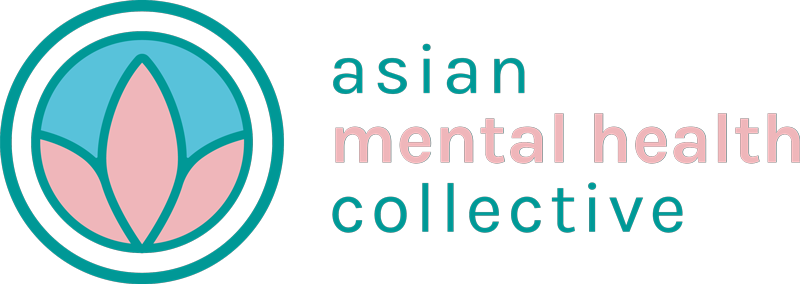Have you ever struggled with navigating your queer identity while also navigating your Asian identity? Have you tried to access therapy or other mental health support and felt it wasn’t affirming of your unique identities?
This month, we chat Sara Stanizai – a licensed therapist, clinical supervisor, and the owner of Prospect Therapy, a queer- and trans-affirming therapy practice based in Long Beach, CA, with a special focus on serving first-generation American and immigrant communities.
A queer first-gen herself, Sara’s clinical and professional work focuses on serving the Afghan diaspora, specifically, fellow Afghan-American women, and bicultural communities in general. In addition to running her group practice, she is on the Board of Directors of the Los Angeles Bisexual Task Force, a 501c3 organization that champions education, advocacy and visibility for the bi+ communities of greater Los Angeles.
Check out the work that Sara does with Prospect Therapy here!

Sara, LMFT and founder of Prospect Therapy
Tell me about your practice! What does it mean to be an affirming therapist? What’s it like to work with LGBTQ+ Asian clients?
Sara: We are a queer and trans affirming practice with a focus on first-gen and immigrant communities. All of our therapists bring lived experience and high quality clinical training to our work. Lived experience in short means we share many identities and experiences with the people we serve. We believe that clinical training and lived experience are both important in our work – neither is the “full story.”
An affirming therapist makes sure to check our assumptions, examine our own biases, understand where our own beliefs come from, and keep educating ourselves. Simply because we are “familiar with” a presenting issue or type of person doesn’t mean we know this person’s destination! I like to say an affirming therapist uses our knowledge as a foundation but helps our client build the house on top of it
It’s great working with the intersection of queer + Asian/PoC clients because we constantly hear that this is often one of the first times someone has been able to bring their whole self to therapy and really get to work through things. Even if those things are not what brought them to therapy, at least they don’t have to leave part of themself at the door.
What does it mean or look like when therapists bring lived experience and/or integrate feminist theory into their practice?
Sara: We embrace feminist therapy – which is not just “therapy for women”. It is a framework that takes systems into account. So that if you are experiencing distress, it’s not simply because you need to “shift your perspective.” Feminist therapy recognizes that we all exist within patriarchal and white-centered systems, and that would naturally result in distress for people not at the top.
What’s something you would want to share with young LGBTQ+ Asian folks?
Sara: Your identity is valid even if you don’t have a heartwarming coming-out-to-your-family story. Your experience is still valid even if you don’t share the information with your family. “Coming out” is not a deciding factor and is often imposed on people who are not interested or able to share things about ourselves.
Chosen family is a real thing and finding people who treat you the way you deserve, with respect, understanding and compassion is not limited by conventional standards.
Any tips for those who are unable to access identity-affirming therapy?
Sara: Find your people! We are everywhere. It does not have to be limited to official providers just like it doesn’t need to be your caregivers or siblings. There are peer-led groups, online forums, gaming communities, queer coffee shops or bars (if that’s your thing), and other groups that have nothing to do with being queer that you can join.
Also don’t feel bad for needing or wanting recognition or validation. We all need that when we are figuring ourselves out. If we don’t get that – if others don’t reflect us back to ourselves, it can be hard to know what’s what. Once you get enough of that, you’ll know who you are even if no one is there to validate you. It’s like trying to get dressed in the dark – we need some sort of confirmation that we’re doing it right. That our signal is being received. Once we get comfortable with that, then we don’t need the mirror after all. 😊 But everyone needs it at first, so don’t feel bad for that!
What do you want to say to those navigating coming out to their family as an Asian queer person?
Find an ally, a role model, or a buffer for tense family situations. If you have someone to whom you can vent about it afterward, that can make all the difference and help you feel less alone.
If you are the first or only in your family that you know of, take heart in knowing that you are being there for your future family members who will be able to look to you for support.
And finally if you tell everyone but your family, or no one at all, you’re still who you say you are.
Check out Prospect Therapy as well as the Los Angeles Bi Task Force which Sara is on the board of!

